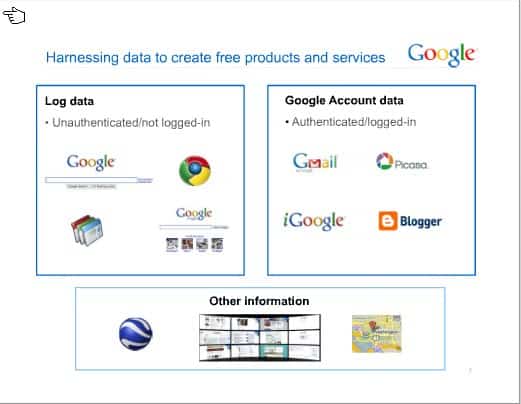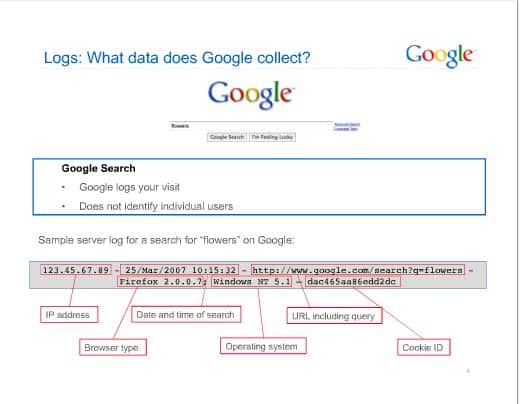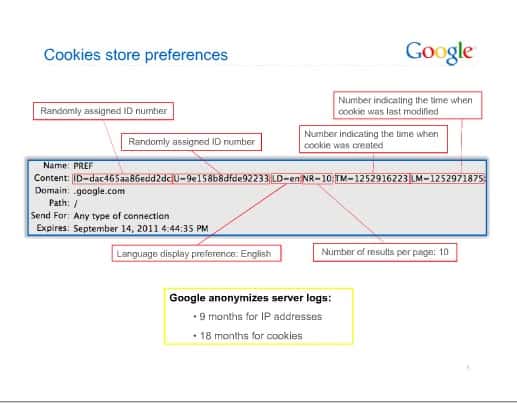Google And Privacy

Privacy is a big issue on the Internet these days, and companies like Google have to put a lot of effort into convincing or reassuring Internet users that they do care about the individual user's privacy.
A recent post on Google's Privacy blog explains Google's approach to privacy in the form of a presentation. It lists the data that is collected by various Google services, and how that data is used by Google to improve the company's services.
Data that is stored by Google is divided into the three groups log data, account data and other information. Log data is stored when users who are not logged into a Google account perform searches or use the Google Chrome browser. Account data is stored when logged in users use services like Gmail or Picasa.
Other information logs are stored when users access services like Google Maps.
Google data types
Google exemplifies that by highlighting the data that is logged by Google Search.

The first slide displays the data that Google stores for every search that is performed on the Google Search website. This includes the IP address of the user, date and time the search was performed and a cookie ID.

The second slide provides a detailed look in the cookie. It uses two randomly assigned ID numbers. The same slides explains that Google stores IP address information for nine months and cookie information for 18 months.
The remaining slides explain the purpose of those logs. This comes down basically to improving search results and other services.
Take a look at the presentation below for the full picture: Update: The slideshow is no longer available unfortunately.
It boils down to the following for Google Search. Google can track a single unauthorized user for up to 18 months provided that the cookies are not cleared in that time. The logs can contain several IP addresses, dates, times and search queries conducted by that single user.
It would be possible to merge that data with data gathered from Google accounts which could theoretically be used to identify a user based on those information (think emails in Gmail that often contain the full name of a user).
What's your opinion (and possible precautions) on the matter? (Google Privacy Blog)






















I have gotten to where I don’t trust Google wholly. I have “save search history” turned off, but still use Scroogle on occasion, or Dogpile.
The point they seem to miss is that although they may not identify an ip address with an individual, they or possibly third parties could if they wanted. This is the biggest issue I have.
“The remaining slides explain the purpose of those logs which basically comes down to improving search results and other services.”
This is actually not true. The search results do not change depending on user preferences, they are related to the indexed sites. All that is changed is the relevance that Google assigns to every search term and result site, but the information itself is not changed by what user does.
Adrian that is actually not true. Google has integrated personalized search even for users who are logged out of their user account which means that your search experience and mine can be drastically different depending on our past searches.
But maybe we have a different definition of search results..